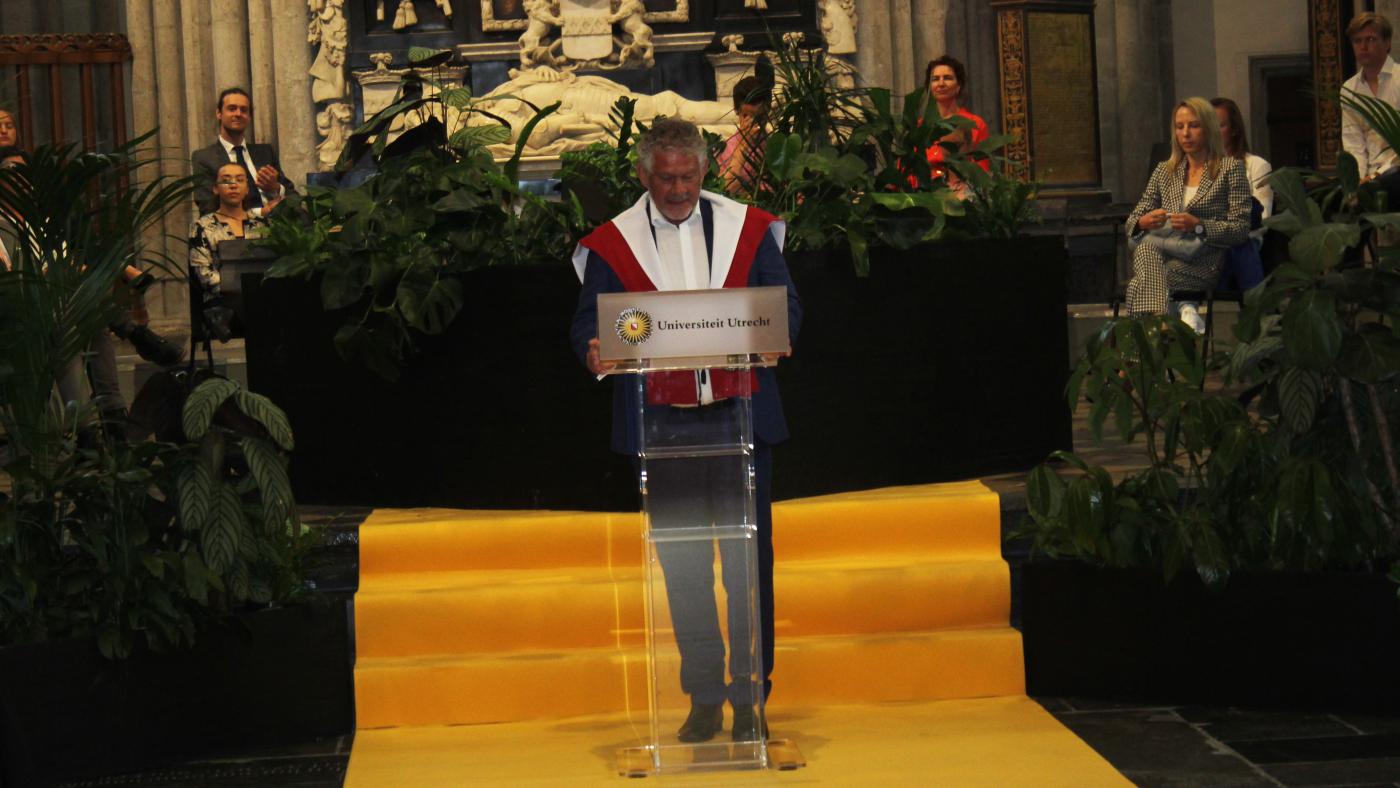Honorary doctorates go to green technology, new HIV approach and youth in conflict areas

The three scientists felt grateful and honoured on Monday, September 6, when they received the kappa, a cape that they can wear on top of their gown, symbolising an honorary doctorate from Utrecht University. The ceremony was initially planned for March, when UU celebrated its 77th lustrum, but that commemoration had to take place online. This time, only one scientist was able to attend the ceremony in person and the remaining two laureates joined it through a live stream.
Traumatised youth
The first honorary doctorate went to Alcinda Honwana, a scientist from Mozambique whose research focuses on young people in conflict areas, especially in Africa. She has delved into the issue of child soldiers, for instance. Honwana came up with the concept of "waithood," which stands for the slow, difficult and often traumatising transition from childhood to independent adulthood.
Honwana was already in Utrecht in 2007, when she was granted the Prins Claus Chair in Equity and Development for a year. Established by UU and the International Institute of Social Studies of Erasmus University Rotterdam in honour of Prince Claus (1926-2002), this rotating chair is granted to outstanding scientists from developing countries. Currently, she works as Adviser on Social Development Policy for the United Nations. Prior to that, she was long associated with the Firoz Lalji Institute for Africa within the London School of Economics & Political Science.
Smart green technology
The second laureate is the British-Venezuelan Carlota Perez, who became a researcher rather late in life. "When working as a civil servant in the 1970s, I saw how important oil was for almost everything in life. It dawned on me that oil would be replaced by microtechnology and that transformation has had major societal consequences. That became my field of study." Perez went to California to conduct her research, and there she became an authority in the field of technological developments in historical context. She saw in practice how governments are unable to keep up with the fast technological developments. Perez is the author of the influential book Technological Revolutions and Financial Capital: The Dynamics of Bubbles and Golden Ages, in which she observes how society deals with technological developments in waves.
Talking to the audience at the Dom church from Sussex, Perez declared that she expects a positive development related to sustainability. She names it "smart green growth": we'll be able to work on a more sustainable society through the use of such technology. "But that's not going to be automatic. We'll have to work toward it," she noted. Currently, Perez is associated with the University College London. She also serves as an adviser for several organisations, including the European Union. She's also part of Deep Transitions, a project set up by UU professor of Global History and Sustainability Transitions, Johan Schot. Its goal is to research social technological systems that form the backbone of contemporary society.
More than just an HIV clinic
South-African professor Hugo Tempelman was the only one actually present at the Dom church. He's also closely connected to the university, having worked as a guest teacher from 2007 to 2012, leading Social Sciences Master's students and PhD candidates in the University Medical Centre.
His work is also linked to practice. Twenty-six years ago, he built a small HIV clinic in one of the poorest regions of South Africa. The clinic, which is called Ndlovu (that means "elephant" in Zulu), has since then become an established name as a non-governmental organisation (NGO) and HIV clinic, both nationally and internationally. The clinic has its own pharmacy, laboratory, and X-ray facilities. But Tempelman looks beyond: he also provides food kits for the people in the region, to keep them from getting sick or dying. Ndlovu is one of the few labs in that area that is certified to diagnose Covid-19 using the PCR methods.